#túrin
Text
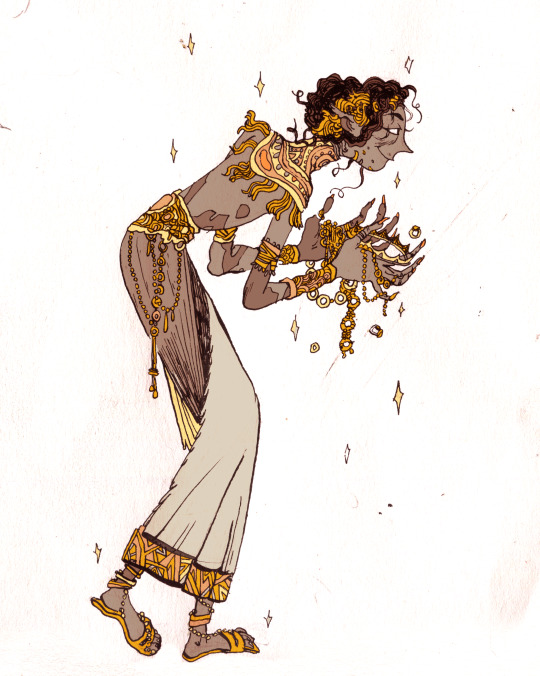
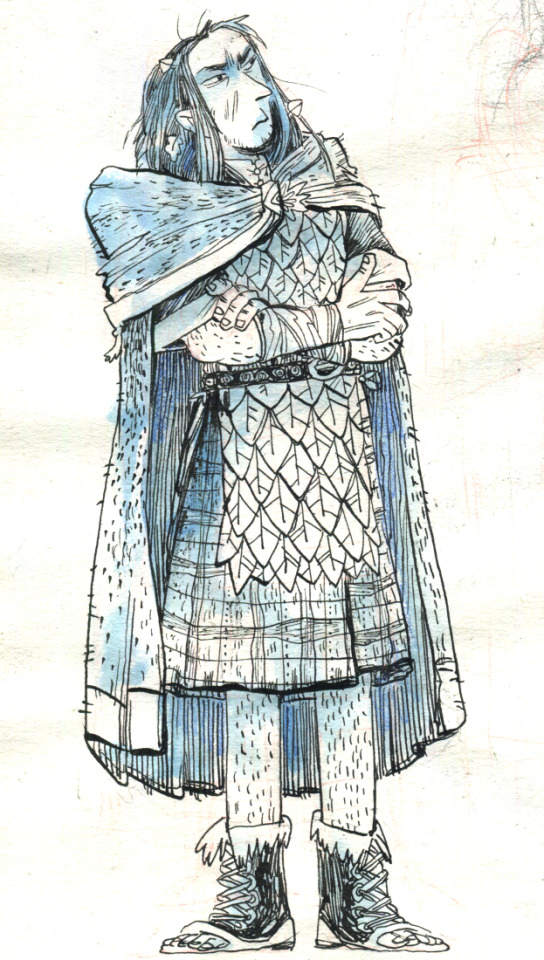
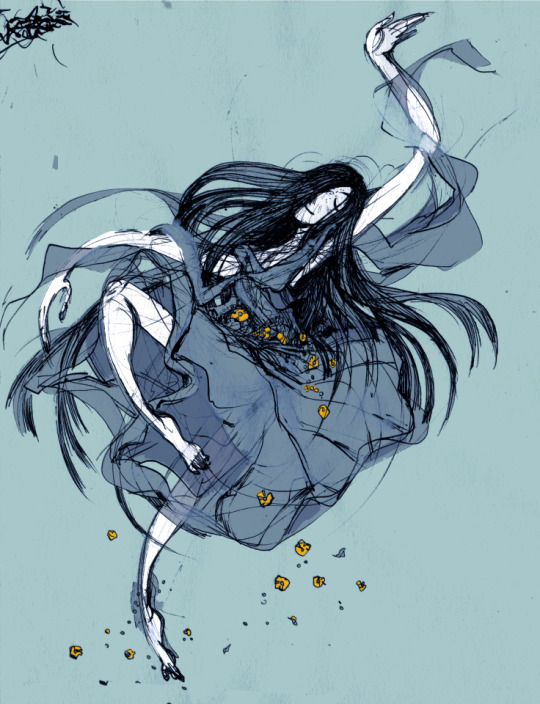
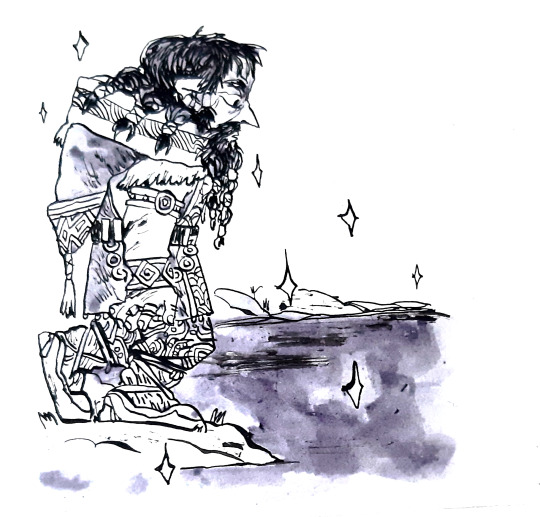
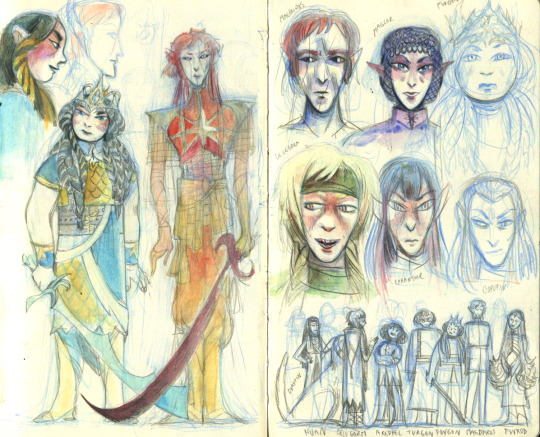
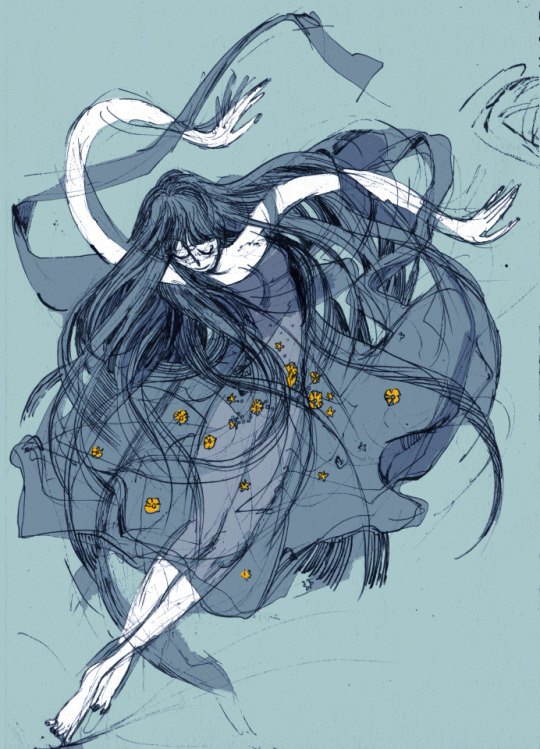
x_x
spamming random Silmarillion doodles :
Annatar ( I love drawing jewels ♥ )
Túrin in Doriath armor ♥
Wild Lúthien
Dúrin and Mirrormere
Finweans (It was 2 a.m., I was waiting for a friend, I had to draw beautiful elves to stay awake x_x)
More of wild Lúthien ♥
1K notes
·
View notes
Text

túrin turambar
#my art#lotr#lord of the rings#silm#silmarillion#tolkien#children of hurin#túrin#turin#turin turambar#dragon helm#dorlomin
607 notes
·
View notes
Text
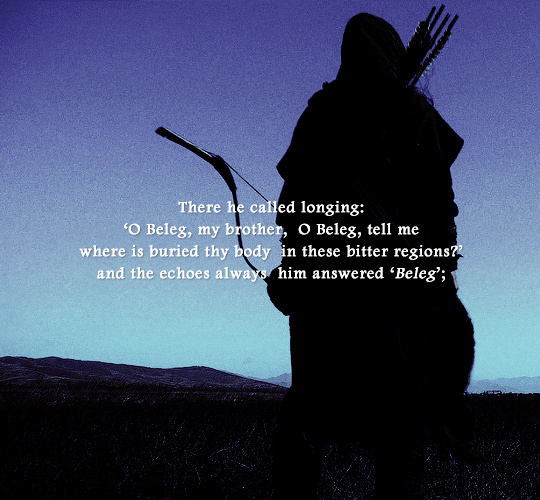
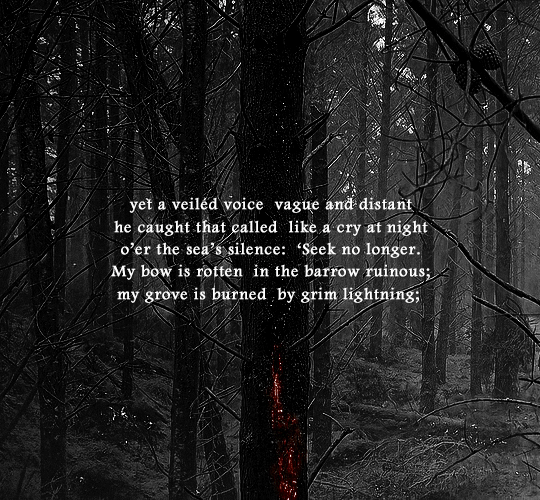
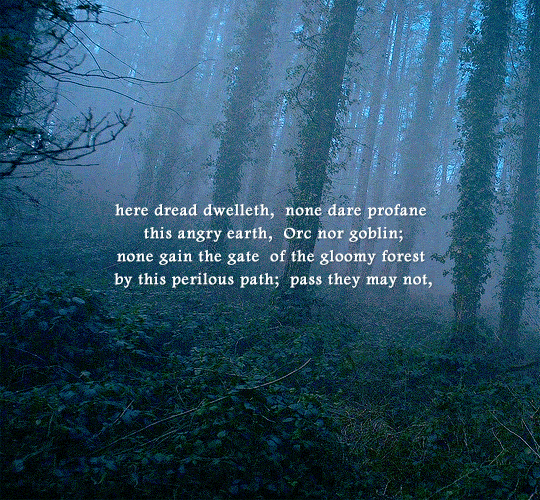
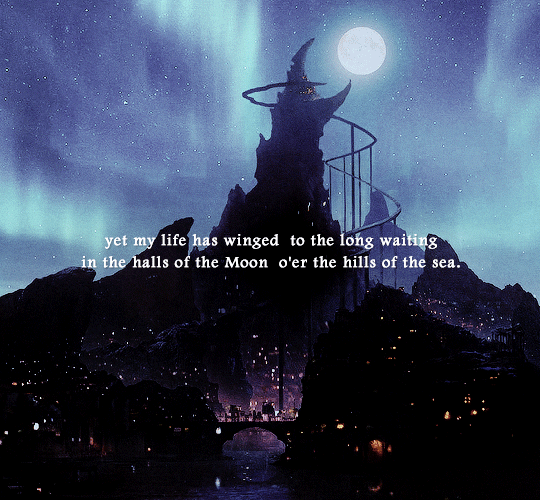
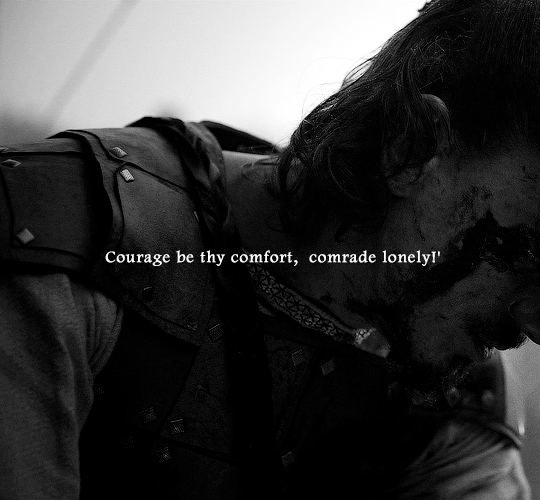
@dorcuartholweek day 1: farewells
'Now fare well, Beleg, to feasting long
neath Tengwethil in the timeless halls
where drink the Gods, neath domes golden
o'er the sea shining.'
— THE LAY OF THE CHILDREN OF HÚRIN: III. FAILIVRIN
#cohedit#silmedit#tolkienedit#tolkien#tolkiensource#dorcuartholweek#túrin#beleg#the children of húrin#silmarillion#mgifs*#bow and helm.#absolutely insane over this mr. tolkien
451 notes
·
View notes
Text

adanedhel they call me, agarwaen i name myself
#mormegil they call me turambar i am#TÚRIN TURAMBAR DAGNIR GLAURUNGA!#túrin#túrin turambar#children of hurin#children of húrin#silmarillion#art#drawing#my art#fan art#digital art#tolkien#silmart#lotr#tolkien art#the silmarillion
2K notes
·
View notes
Text
With all the Gollum game stuff going on, I’m going to pitch yous my cursed (cough) idea for a Túrin Turambar game.
You play as Túrin (naturally) and you’ve got a curse gauge that fills up as you play. You can’t stop it completely, but you can try to slow it down through the various choices you make through the game. BUT, being Túrin, it’s not as simple as Good Choice = slows gauge and Bad Choice = fills gauge. Sometimes if you make the Good choice, Morgoth will go off to sulk, so the gauge stalls. But sometimes, he’ll be so pissed off he’ll accelerate it for a bit, just out of spite. And sometimes just making the Good choice has an equal and opposite reaction that wreaks devastation on you and the NPCs around you.
Sometimes choosing the Bad option will slow the gauge down, simply because Morgoth is too laughing his ass off at you. Other times it’ll accelerate the gauge because from a purely objective standpoint HOLY FUCK WHAT IS WRONG WITH YOU?
Every so often the gauge fills up and unleashes something terrible. Your best bet is to be somewhere relatively isolated so the damage is minimal. (Or you might be one of those sickos who likes to watch the world burn, so you plank yourself in the middle of a crowded marketplace or slap-bang in the halls of Menegroth to watch the fireworks.)
There are several romance options. None of them end well.
Gurthang talks to you as you move around. Usually telling you how awful you are, usually at the most inopportune times, when you’re trying to line yourself for a tricky jump, or in the middle of a stealth mission where silence is key. After the first few times of this you’re ready to eat your controller in rage.
There is no good ending.
Also, naturally, because it’s a Túrin game, the whole thing is bugged tae fuck.
(After you complete the main storyline, you can unlock a secret mission where you play as Tuor, trying to navigate Ivrin without attracting the attention of the strange man in black.)
416 notes
·
View notes
Text



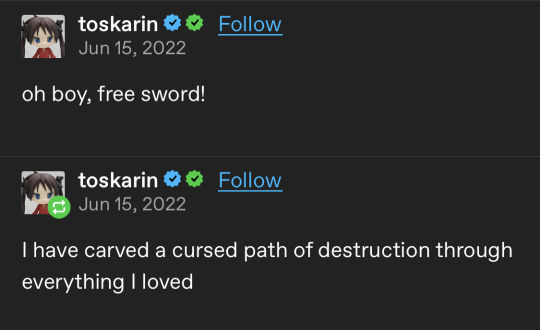
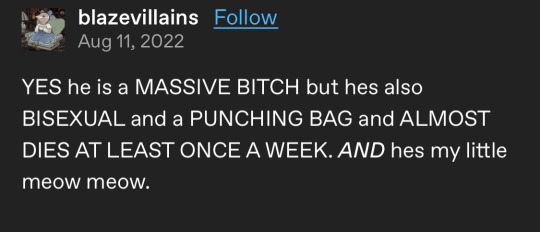





the children of hurin (2007)
674 notes
·
View notes
Text
Very important poll
#the silmarillion#feanor#mande#turgon#Túrin#finrod#curufin#fingon#thingol#galadriel#finwe#maglor#silm poll
219 notes
·
View notes
Text
The tragic irony of Túrin punishing Saeros for insulting Morwen and Niënor by saying the women of Hithlum run naked in the woods like does and, a few chapters later, Niënor running naked in the woods and being compared to all sorts of frightened beasts by the narrator.
143 notes
·
View notes
Photo
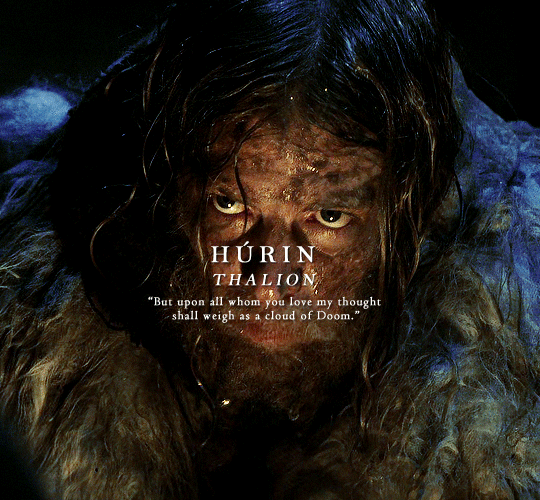

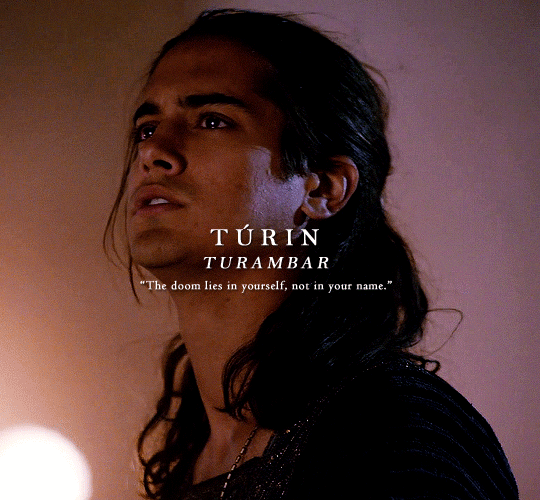
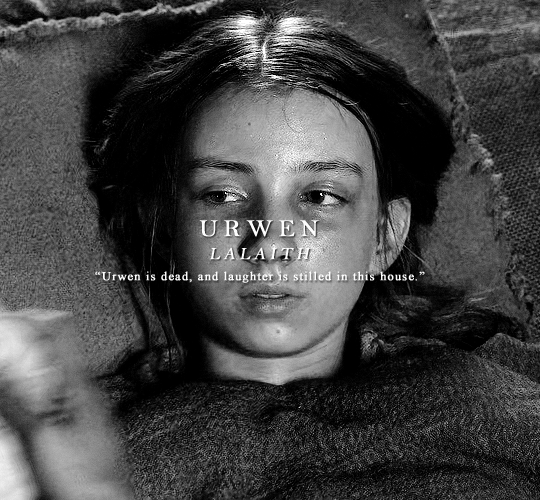
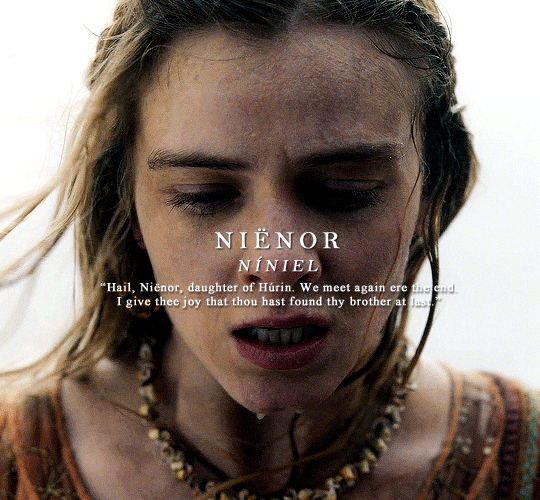
Then Morgoth stretching out his long arm towards Dor-lómin cursed Húrin and Morwen and their offspring, saying: "Behold! The shadow of my thought shall lie upon them wherever they go, and my hate shall pursue them to the ends of the world."
— THE CHILDREN OF HÚRIN, CHAPTER III: THE WORDS OF HÚRIN AND MORGOTH
#tolkienedit#tolkiensource#silmedit#cohedit#the children of hurin#the children of húrin#the silmarillion#húrin#morwen#túrin#lalaith#nienor#tolkien#fancast#gf*#this turned out more depressing that expected#a nice family set! that was the original plan
738 notes
·
View notes
Text
Apparently in my absence this post had its 1000-notes-iversary.
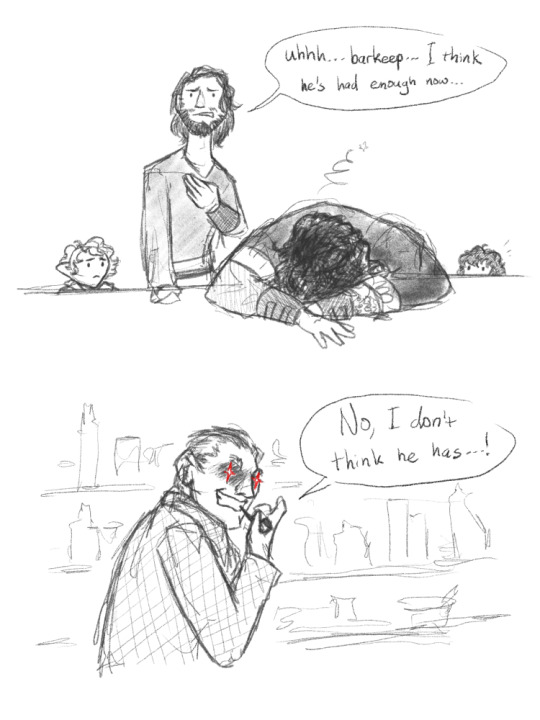
This time we get to see the culprit responsible for ruining our heroes' lives as well.
I've really missed you guys, by the way. I know I've said that already, but I'm serious. Once or twice this year I've been right on the brink of coming back but schedule stuff always keeps me from letting myself commit to that again, and that in turn has kept me from posting anything at all. But I've been in an unexpected drawing mood lately and so if I can get enough stuff to set up a queue we might pretend I'm back for a month or so sometime this year. Maybe. Hopefully. We'll see. No promises though. That's why I'm hiding this paragraph under the cut.
Transcription:
[Beren:] "Uhhh...barkeep...I think he's had enough now..."
[Tolkien:] "No, I don't think he has...!"
#beren#bilbo#frodo#tolkien#túrin#the man the myth the legends#beowulf except everybody is short#one shiny#three shinies#everyone deserved better except mîm#what's this a happy ending#my trash#is this actually funny or am i just tired#i'm sorry professor tolkien#/end classification tags#túrin keeps becoming a bigger and bigger guy in my drawings and at this rate he's going to be way taller and broader than he should be#canonically he was really tall and broad but i don't think the professor meant like THIS#at least it makes him really distinct i guess#gonna be sufficiently intimidating for the dagor dagorath#but in the meantime he's just making beren look like a schoolkid in this doodle#(and as i'm sitting here writing these tags i suddenly realize i forgot túrin's white hair streaks again)#(tsk tsk shame on me)#(and didn't it say somewhere that beren's hair also turned grey...? i can't remember where it said that though)#(0 for 2 i have failed all of us)#ANYWAY in my absence tumblr apparently changed formatting again which is not cool but whatever#it's nice to draw again#i've had art block for like 9 months straight#and suddenly this month i suddenly was able to write AND draw again as if i never stopped#i've had writer's block since maybe 2021 so that was the most surprising part#weirdest thing ever but i'm not mad about it
57 notes
·
View notes
Text
Tolkien characters as random posts:
Fëanor:
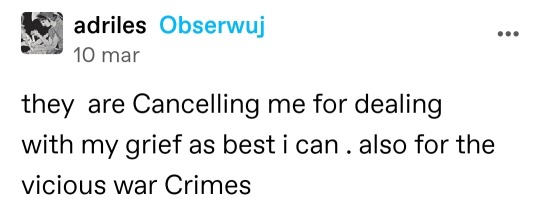
Míriel:
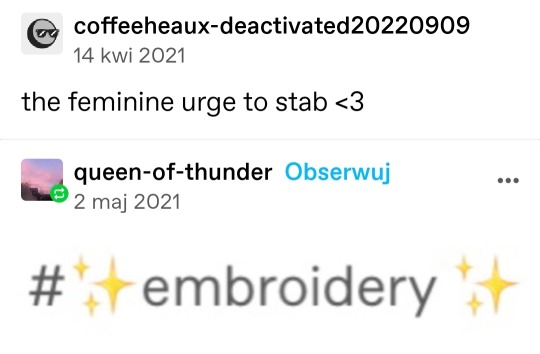
Maglor:

Curufin:

Finrod:
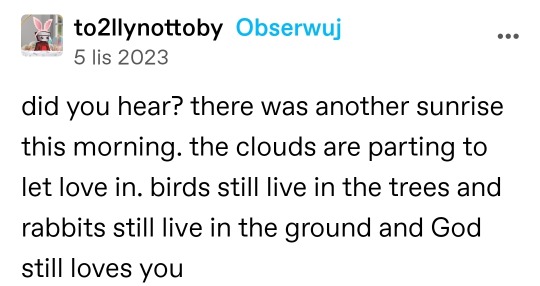
Túrin Turambar:

Galadriel:

Aredhel:

Eärendil:

Elrond:

Obligatory credit to all the people who reblogged a few of these saying it's [Character], although I cannot find those specific reblogs, because that's how I became aware of some of the above.
#my post#character lists#Fëanor#miriel serindë#Maglor#Curufin#Finrod#túrin#Galadriel#Aredhel#Eärendil#Elrond#tolkien#Silmarillion
64 notes
·
View notes
Text
One of the most striking and consistent features of Tolkien’s works is that the people who think they’re the hero of the story never are.
In The Hobbit, Thorin & Company (less Bilbo, who feels lost and out of place continually) think they’re the heroes of a story where they kill Smaug and regain their kingdom and treasure - and then Smaug is killed by Bard, a character who isn’t even introduced until the moment of Smaug’s attack. And Thorin decides that the person responsible for the death of Smaug, without whom Thorin would have no treasure and also be dead, is his enemy. Self-appointed heroes tend not to like it when someone else displaces them from their role in the story.
In The Lord of the Rings and The Silmarillion, the pattern recurs again and again and again, both with some very sympathetic characters and some outright villainous ones. We see it in characters who are jealous for prominence and position, but also in some who mean well and have concluded that all the burden of saving/protecting the world lies upon them. The common thread is the conviction that the world will only be saved if people do what the self-appointed hero wants, how they want it, when they want it, and - in the most severe cases - only if they specifically follow and offer their support to the hero in doing it. If someone isn’t backing up the hero, they are assumed to be not contributing.
Boromir: “those who shelter behind us give us praise…much praise but little help.” ‘Doom’ he interprets as “the doom of Minas Tirith.” And, later, when the Ring has gained more hold on him: “How I would drive the hosts of Mordor, and all men would flock to my banner!”
And Denethor: “Yet the Lord of Gondor is not to be made the tool of other men’s purposes, however worthy. And to him there is no purpose higher in the world as it now stands than the good of Gondor.” Later falling to, “I will not step down to be the dotard chamberlain of an upstart!”
Neither of them are fundamentally ill-meaning; both of them fall prey to the idea that they are the world’s only hope of standing against Sauron, and break under that burden.
Less well-meaning, but nonetheless only gradually corrupted until near the end, is Saruman: “hindered rather than helped by pur weak or idle friends”. Again, he percieves himself as the only chance of defeating - or controlling/manipulating - Sauron.
And more cases in The Silmarillion, of characters who have determined that they are the hero and following their lead is the contribution that counts. Fëanor and his following, and indeed the Noldor in general, going to Middle-earth to overthrow Morgoth, and deciding that anyone who does not back them is idle or cowardly or traitorous. Túrin, who again and again insists that if you are not doing things the way Túrin wants, you are not doing anything. Watch in particular for the repeated theme that dissent=cowardice.
Fëanor: “Say farewell to ease! Say farewell to the weak!…Let the cowards keep this city!” And “If Fëanor cannot overthrow Morgoth, at least he delays not to assail him, and sits not idle in grief.” And “fainthearted loiterers.” And “needless baggage on the road.” It is worth recalling that the Valar are not as idle as Fëanor thinks, and their largest contribution prior to the War of Wrath - the creation of the Sun - is a major blow to Morgoth, and orcs dread and shun the Sun through the whole First Age and after.
Túrin: When Beleg questions the effectiveness of his strategy: “I will be the captain of my own host, and if I fall, then I fall. Here I stand in the path of Morgoth, and while I so stand he cannot use the southward road. For that in Nargothrond there should be some thanks; and even help with needful things.” This does not acknowledge that the ability of Morgoth’s armies to come south in force is itself a consequence of Beleg leaving Doriath to aid Túrin; prior to that, Doriath had held Dimbar and kept the orcs back.[1] So Túrin is claiming prime credit for solving a problem that he has, in effect, caused. Then in Nargothrond, to Gwindor: “And do those that you speak of love such skulkers in the woods?” And to Gelmir and Arminas: “runagate…get you back to the safe shores of the sea.” (It is worth noting that here, as well as when Fëanor calls the Noldor who do not want to return to Middle-earth cowards, the narrative observes outright that such accusations are false.) And then to Aerin, who has a bravery he could never imagine and cannot comprehend: “A faint heart is yours, Aerin Indor’s daughter…you were made for a kinder world.”
I recognize that Túrin is a complex character, as are most of the others I have mentioned. My point here is that there is a consistent thread running through Tolkien’s works, that however well-meaning these attitudes may be, they are ultimately destructive.
The great victories come from characters with wholly other attitudes. The ones who don’t think that they are the one hero who can or has to fix everything; who look at insurmountable perils and say this is too big for me, but I will do what I can. And those who recognize that they play one part among many, and not the most important one. That is Frodo and Sam; that is Merry and Pippin. That is Legolas and Gimli, who, standing in Helm’s Deep awaiting battle, recognize that their own peoples far away the same dangers, and they are not the only ones fighting. This is Aragorn, who uses the hero-delusion as a façade to trick Sauron, walking into a trap on the slim hope that it may aid Frodo. This is Beren and Lúthien, who say this is beyond me and I don’t know what I’m doing, but for the sake of the one I love I must try, and succeed because of that. This is Tuor, who gets destiny thrust upon him despite - perhaps because of - the fact that he is not looking for it. This is Elrond, who plays a supporting role in every conflict he is placed in, who aids and shelters and advises and heals and does not rule.
It is entirely fitting that the man who wrote “the medievals were only too right in taking nolo episcopari as the best reason a man could give to others for making him a bishop” wrote stories enshrining the idea that nolo heros was the best qualification for being a hero. And likewise perfectly fitting that the temptation offered by the Ring - to people of essential decency - is not deliberate, selfish despotism, but the exact conviction or attitude or temptation described above: you’re the hero, you’re the one who can fix everything. “For the way of the Ring to my heart is pity, pity for weakness and the desire of strength to do good.” “In place of the Dark Lord you will set up a Queen” - and Sam echoing in plainer language Galadriel’s temptation - “You’d put things to rights…You’d make some folk pay for their dirty work” - and Galadriel recognizing the deception of the temptation - “That is how it would begin. But it would not stop with that, alas!” Boromir’s vision of armies flocking to his banner, and Sam’s of “Samwise the strong, Hero of the Age.” And, at the end, it fits with with Tolkien’s description of Sauron - the temptation that the Ring is offering to these good characters is the very temptation that Sauron himself initially fell to, the desire to fix everything, make everything work properly.
Tolkien’s conception of the real hero, rather than the self-appointed one, echoes at last the Ainulindalë and the Valar: the idea that creation and shaping and changing the world are fundamentally a collaborative effort, born of and enriched by the visions and contributions of many people, not by some static programme.
[1] The Narn mentions that while Beleg searches for Túrin the first time Dimbar is overrun by orcs, who are then able to reach to the east of Brethil, which they had not before. When Beleg returns to Dimbar the orcs are driven back; but when he joins Túrin at Amon Rudh, Dimbar is taken and the orcs come south again.
#tolkien#the silmarillion#the lord of the rings#the hobbit#thorin#boromir#denethor#feanor#túrin#frodo baggins#sam gamgee#beren#lúthien#elrond#galadriel#gandalf#sauron
1K notes
·
View notes
Text

POWERPUFF TURLEG
I enjoyed drawing this LOL
60 notes
·
View notes
Text
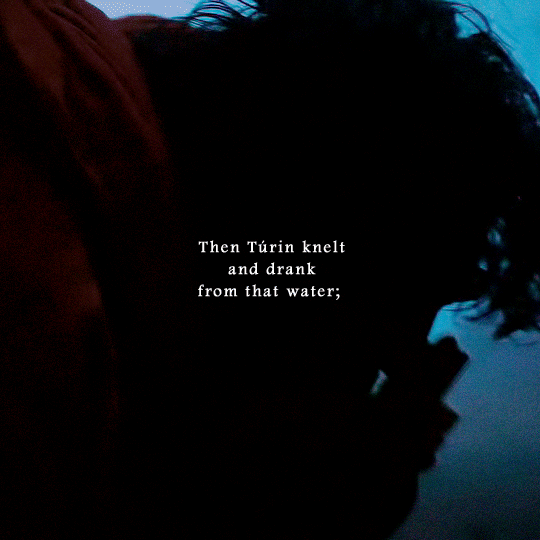
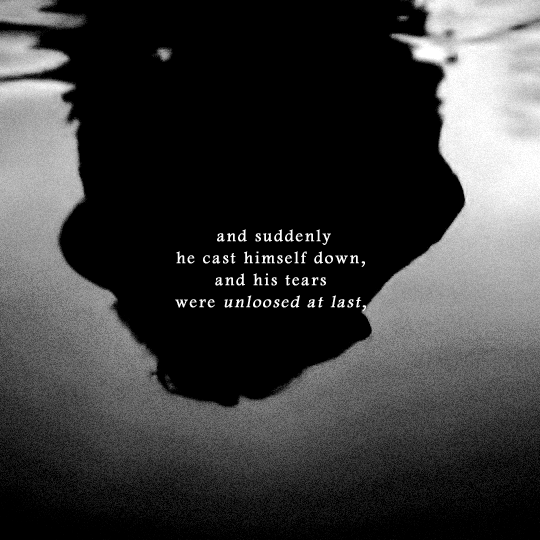

Never once as they wandered together on long and grievous paths did Túrin speak, and he walked as one without wish or purpose, while the year waned and winter drew on over the northern lands. But Gwindor was ever beside him to guard him and guide him; and thus they passed westward over Sirion and came at length to the Beautiful Mere and Eithel Ivrin, the springs whence Narog rose beneath the Mountains of Shadow. There Gwindor spoke to Túrin, saying: 'Awake, Túrin son of Húrin! On Ivrin's lake is endless laughter. She is fed from crystal fountains unfailing, and guarded from defilement by Ulmo, Lord of Waters, who wrought her beauty in ancient days.' Then Túrin knelt and drank from that water; and suddenly he cast himself down, and his tears were unloosed at last, and he was healed of his madness.
— THE CHILDREN OF HÚRIN, CHAPTER IX: THE DEATH OF BELEG
#túrin#turin turambar#the children of húrin#silmarillion#silmedit#tolkienedit#sourcetolkien#tolkien#cohedit#mgifs*#not done with these yet
311 notes
·
View notes
Text
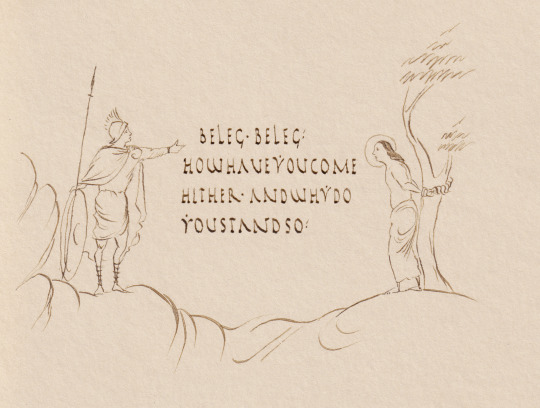
*shows up extremely late to @dorcuartholweek with an Utrecht Psalter style sketch*
#beleg cúthalion#túrin#tolkien#in the style of the utrecht psalter my one true love#using home-made inks & quill!#one day i'll make a manuscript of the lay#sorry i'm late i was Away
112 notes
·
View notes
Text
“falling in love with a beautiful woman you met in the forest” ranked on a scale from “Beren” to “Túrin Turambar”
#jrrt really loved this trope huh#tolkien#silmarillion#lotr#lord of the rings#jrr tolkien#j.r.r. tolkien#túrin#silm#túrin turambar#children of hurin#beren#beren and luthien#the silmarillion#the silm fandom#silmposting#silm memes
176 notes
·
View notes